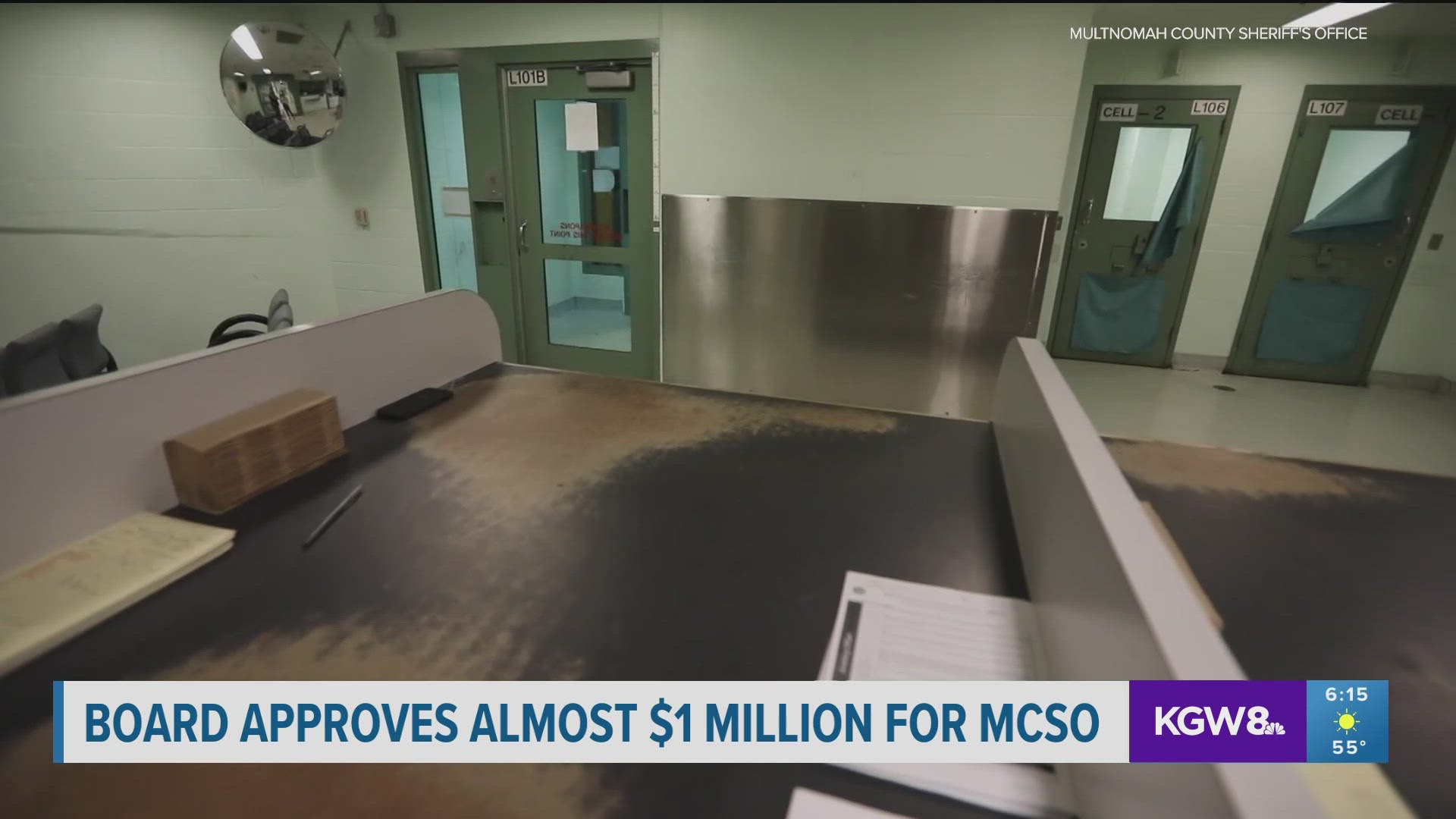MULTNOMAH COUNTY, Ore. — During Thursday’s board meeting, the Multnomah County Board of Commissioners approved a modification to the budget, allowing the Multnomah County Sheriff’s Office to receive $965,885 in additional general funds. This follows MCSO announcing they are approaching jail capacity.
The funding only applies for the last half of this fiscal year, which ends in June 2025.
MCSO will use the funding solely for staffing their Human Resources unit, which will assist the sheriff’s office in recruiting, hiring and retaining the staffing they say is desperately needed.
Sheriff Nicole Morrisey O’Donnell wrote a letter to board on Nov. 1, which listed that the office has between 80 to 90 vacancies on a routine basis, with around 30 of them coming from their Corrections Department.
“When we have a staffing crisis — which we're experiencing in the Corrections Division — now, we're experiencing that in other parts of the organization, and so if our team with limited resources is focusing on the situation at hand — particularly the Corrections Division — other areas of the organization will fall behind with our hiring and recruiting and retention efforts,” said O’Donnell.
Now, new rules like mandatory overtime have been implemented to try and fill the gaps, but O’Donnell said this has also led to issues like lower staff morale, higher turnover and regular jail closures.
It’s also not good for inmates to have limited staffing, which District 3 Commissioner Julia Brim-Edwards mentioned during the meeting.
O’Donnell said they have been requesting funding for HR to match their needs, but in recent years, only received limited one-time funding — or simply no funding.
“This is a challenge and a problem with not having sufficient funding for a right-sized human resources department to recruit, hire and retain a workforce the size of Multnomah County Sheriff's Office, especially given the hiring pushes in the 1990s and seeing those retirements in numbers that we have not seen in many years,” said O’Donnell.
O’Donnell said the staffing issues aren’t just due to retirement, although that is a contributing factor. The pandemic also played a role in causing MCSO to lose staff in the time that followed.
“People don't stay in public safety necessarily for 30 years, so we may have been seeing the surge a little bit earlier than expected, partially due to the pandemic, where there are all kinds of opportunities for people to potentially work remotely and not to be working every single day in congregate settings,” she said.
“We have continued to see a higher vacancy rate, so we have continued to not be able to keep pace. And so, the longer that goes on, the more dire the crisis is, and the more resources that it will take to ensure that we can start moving in a positive direction,” O’Donnell continued.
O’Donnell addressed the concerns regarding if protests following the election were to happen and led to people being arrested and what would happen, given that jails are nearing capacity.
“In the coming weeks, just as I have done leading up to Election Day, we have continued to work with our system partners and ensure that if there's individuals that are in our custody that have holds from other jurisdictions, that we are moving those individuals proactively to ensure that we are able to support all of our law enforcement partners throughout the next few weeks,” she said.
“When there aren't available individuals that meet the criteria for emergency population release, we work with our partners, just as I described before, and if we are out of options, then limiting the charges acceptable for booking would potentially be another option that I may need to employ,” she continued.
Last week, the jails hovered around the 90% mark of capacity. If they hit 95%, it would lead to them having to implement a “forced release” of certain eligible inmates.
As of Thursday, MCSO said they were at 85% of capacity; however, MCSO also said that number fluctuates on a daily basis.
O’Donnell said when the next budget cycle comes around, it’s likely they will need to ask for an even greater amount of funding to continue meeting their needs.

